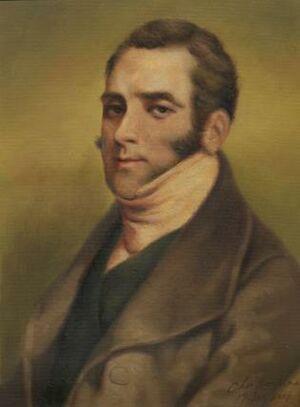Daniel-François-Esprit Auber
French composer (b. 29 January 1782 [N.S.] in Caen; d. 12 or 13 May 1871 [N.S.] in Paris).
Tchaikovsky and Auber
Tchaikovsky always had a soft spot for the comic operas of Auber, which, thanks to the Frenchman's graceful melodies, as well as the witty librettos provided by Eugène Scribe (1791–1861), were very popular across all Europe in the 19th century. One reason for the affection which Tchaikovsky felt for Auber's music obviously had to do with his nostalgic memories of Désirée Artôt's first performances in Moscow in the autumn of 1868. Tchaikovsky had been so infatuated with the Belgian mezzo-soprano (to whom he would propose at the end of the year) that he even accepted a commission from Eugenio Merelli, the manager of the Italian Opera Company who had brought Artôt to Moscow, to write some additional recitatives and choruses for Auber's comic opera Le Domino noir, which was to be staged as a benefit performance for Artôt (see TH 175). Even if Tchaikovsky's hostility towards Merelli was not as pronounced then as it would become in the 1870s, when this ruthless impresario effectively secured a hegemony over the Bolshoi Theatre in Moscow that Tchaikovsky would attack time and time again in his articles, it does seem rather significant that the magic of Désirée Artôt's personality and Auber's music combined to induce the Russian composer to collaborate with this future bugbear of his!
A staging of Fra Diavolo by Merelli's company at the Bolshoi Theatre on 19/31 October 1872, with the Franco-Italian tenor Emilio Naudin (whom Tchaikovsky greatly admired) in the role of the bandit chief, prompted Tchaikovsky to put to paper some very interesting reflections on the late Auber's musical personality (see the reference given below). Curiously, Auber's 1828 masterpiece, La muette de Portici (which exerted such a strong influence on Meyerbeer and Halévy, and even on Wagner, not to speak of its role in triggering the Belgian Revolution of 1830!) seems to have been less to Tchaikovsky's liking, as he considered that Auber lacked the passion necessary for such a dramatic subject.
Together with his brother Modest, Tchaikovsky attended a performance of Le Domino noir at the Opéra-Comique in Paris on 22 February 1883 [N.S.] [1]. The 'sentimental' value of Auber's music for Tchaikovsky is also reflected in the way that when Herman Laroche visited the composer at Maydanovo in February 1886, they "started recalling the past, talked about Auber etc." [2]. It is therefore very likely that one of the things Tchaikovsky brought up in his conversation with Désirée Artôt-Padilla, when after many years he met her again at a concert in Berlin on 30 December 1887 [N.S.] (see also Chapter XII in TH 316), was their tentative collaboration on Auber's comic opera twenty years earlier [3].
Arrangements by Tchaikovsky
- Le Domino noir (1868) — additional recitatives and an introduction to a chorus for an Italian production of Auber's opéra comique in three acts (1837).
General Reflections on Auber
Bold references indicate particularly detailed or interesting references.
In Tchaikovsky's Music Review Articles
- TH 266 – In this article, written a year after Auber's death, Tchaikovsky reviews his career as a composer, praising his "elegant clarity" and "beautiful instrumentation" and reflecting on how his personality was very much tinged by the "aristocratic scepticism" of the 18th century. Tchaikovsky emphasizes that Auber's strength lay in opéra-comique, singling out Fra Diavolo (1830) and Le Domino noir (1837) for special praise, whereas in the powerfully dramatic plot of La muette de Portici (1828) he was somewhat out of his depth.
Bibliography
External Links
Notes and References
- ↑ See Дни и годы П. И. Чайковского. Летопись жизни и творчества (1940), p. 287.
- ↑ Diary entry for 27 February/11 March 1886, quoted in Дневники П. И. Чайковского (1873-1891) (1993), p. 41.
- ↑ 'Tentative' because Artôt did not actually appear in the version of Le Domino noir for which Tchaikovsky had written those extra recitatives. Lucinde Lauer has suggested that the nostalgic value of Auber's music for Tchaikovsky later induced him to take as the model for Tomsky's ballad in The Queen of Spades (1890) the strophic song with refrain, which in French opéra-comique was frequently used for the exposition of the plot and to hint at an important secret, as in Auber's Fra Diavolo. See Čajkovskijs Pikovaja Dama und die Tradition der französischen Opéra-comique-Ballade (1995), pp. 202–203.

